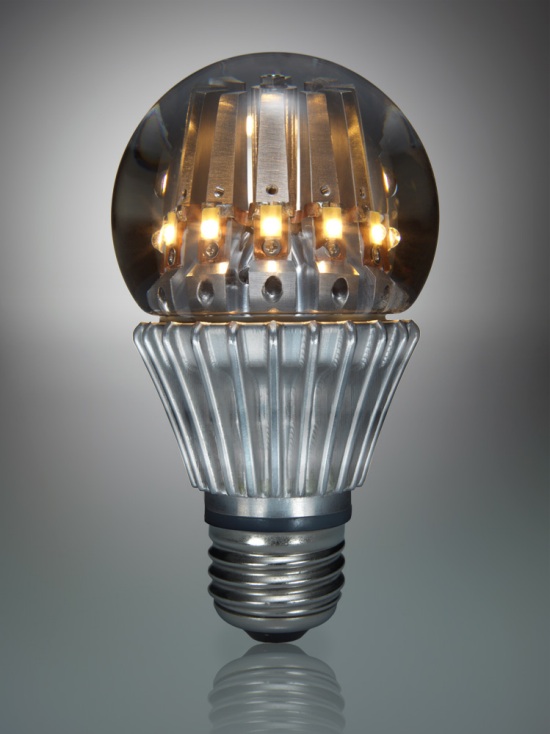By 2014, it will be illegal to sell traditional incandescent light bulbs in the U.S. You've got a handful of alternatives, and one of them, the LED bulb, will last up to 22 years. And the quality of the light it produces will be every bit the equal of traditional bulbs — maybe even better.
This might come as a shock to the trendsetting readers of Grist, but three quarters of the sockets in America are still occupied by incandescents. A recent survey conducted by GE revealed that the same proportion of Americans have no idea that the light bulb ban is even on its way.
Luckily, the technocrats have us covered. Thanks to the L-prize, a $10 million prize from the U.S. government for the most aesthetically pleasing and energy efficient replacement for the 60-watt incandescent bulb, companies like Philips are honing bulbs that combine various colors of LEDs into a suitably warm glow. The bulbs use less than 10 watts of electricity.
What’s the future look like when your light bulb could live longer than your cat? Renters will take their bulbs with them when they move, or else they'll come standard with an apartment. Homeowners will install them and keel over from diseases of civilization before seeing them burn out. We'll all have flying cars and electricity will be too cheap to meter! There’ll be a perfect cosmic harmonic convergence!
We've all heard promises like these before, but occasionally an invention comes along that really does make life simpler and more enjoyable. The only catch? The bulbs start at $20 a pop.




